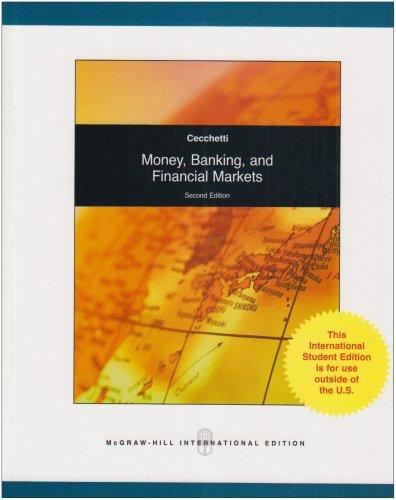Question
5. Answer the following questions: a) Suppose you will pay $7,000 in 2 years, and you will receive $26,000 in 16 years. Given a (nominal
5. Answer the following questions:
a) Suppose you will pay $7,000 in 2 years, and you will receive $26,000 in 16 years. Given a (nominal annual) rate 4%, continuously compounded, what is the net present value (to the nearest $0.01)?
b) Suppose you receive $5,000 every 7 years (starting at year 7), in perpetuity. If the interest rate is 6.5%, what is the present value of your cash flows?
c) Suppose you receive $5,000 every year, starting 6 years from now with final payment 20 years from now. If the interest rate is 18.6% continuously compounded, what is the present value of your cash flows? (Nearest $0.01)
d) Suppose you receive a payment of $2,000 one year from now, but in year 2 the payment will have grown by 1.2% to $2,000 times (1 + 1.2/100), and in year 3 it will have grown by another 1.2%, so that you receive $2,000 times (1 + 1.2/100)^2, and so on into perpetuity. Note that this is compound growth, not linear.
Given an interest rate of 4.8% continuously compounded, what is the present value of these cash flows, to the nearest $0.01?
e) You purchase a T-bill (traded on Oct 1, 2021) at a price of 98.5% of face. The T-bill will mature on Dec 3, 2021. What is the bank discount yield of the T-bill?
Write your answer to the nearest 0.01%, but without writing the %. For example, if your answer is 5.02%, put an answer of 5.02 into the box, not 0.0502.
The answer to these problems are a) 7,247.79 b) 9,025.49 c) 9,057.72 d) 53,805.88 e) 9.00.
I want the equations to get these answers.
Thank you!
Step by Step Solution
There are 3 Steps involved in it
Step: 1

Get Instant Access to Expert-Tailored Solutions
See step-by-step solutions with expert insights and AI powered tools for academic success
Step: 2

Step: 3

Ace Your Homework with AI
Get the answers you need in no time with our AI-driven, step-by-step assistance
Get Started


